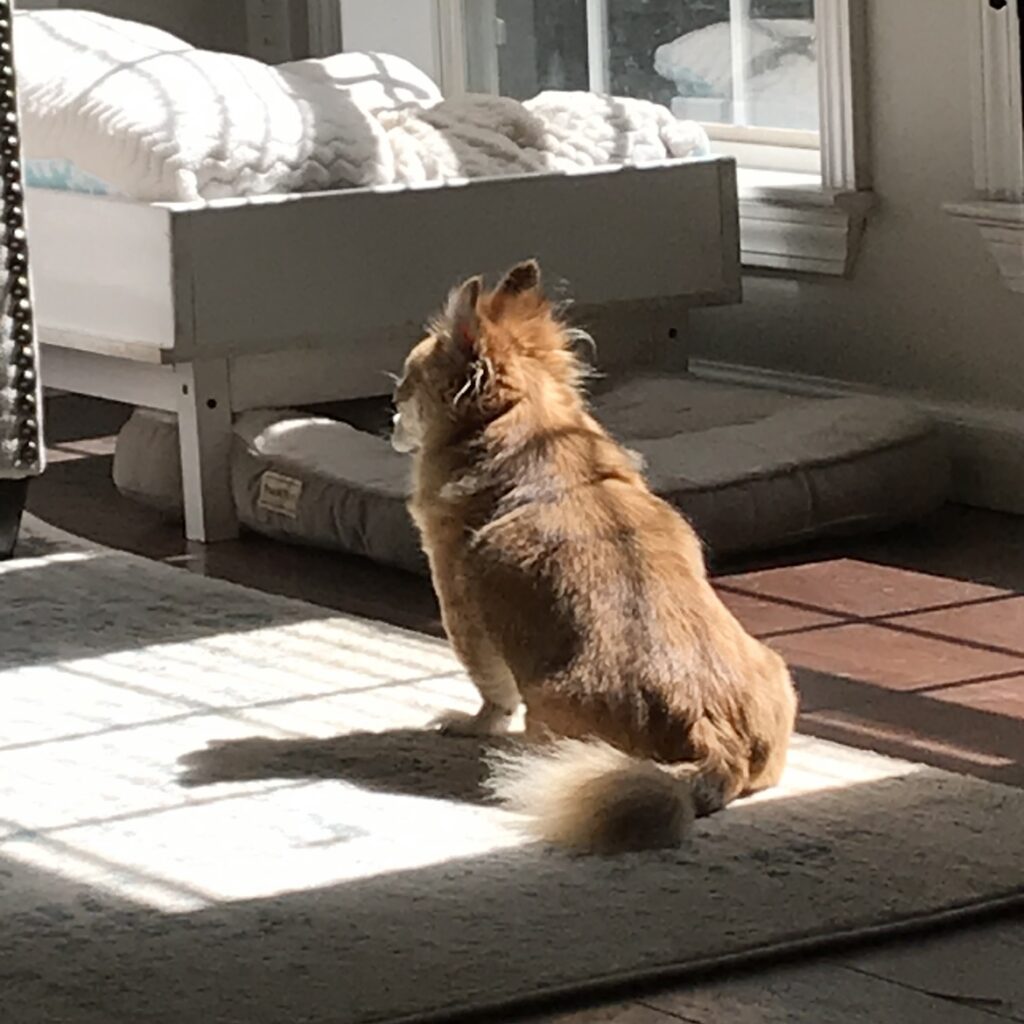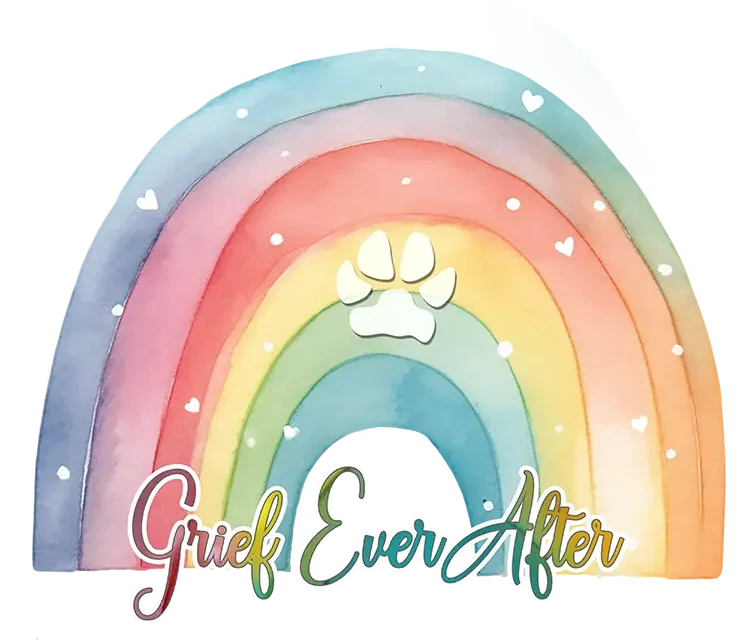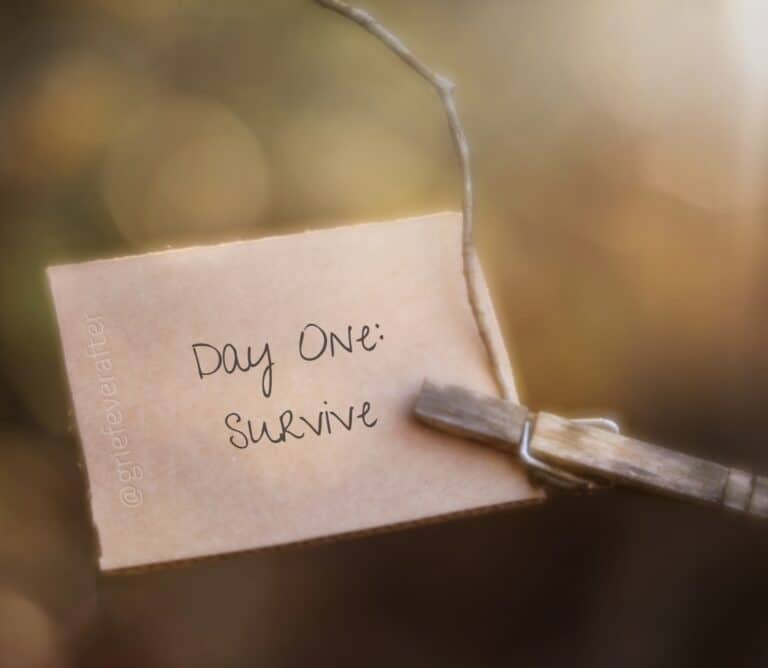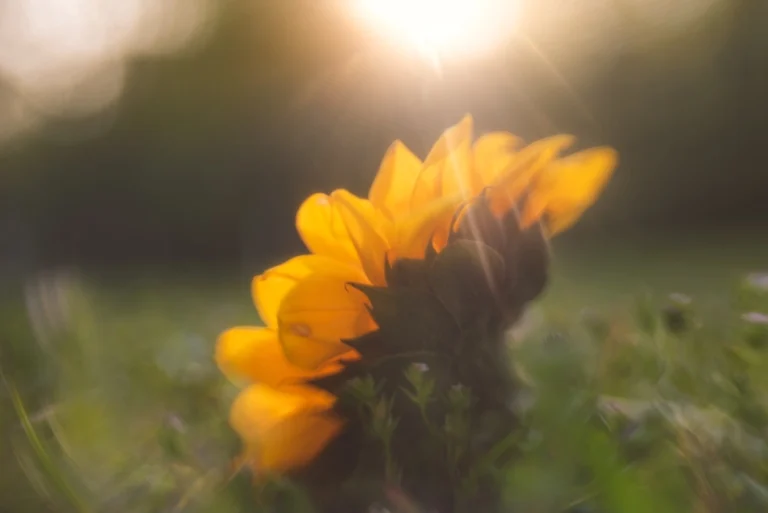Love, Grief and Senior Adoption. A Bittersweet Journey
Writing a post about senior adoption has been on my grief “to-do” list. I thought it would be such a useful tool in my healing journey. I still believe that but now that it’s here and I’m knee deep in grief, I’ve been avoiding it. It feels too real.
My brain has tried to trick me into thinking by writing this piece that I’ve planned so long for, it might mean I’m finished with my grief work and … finished with grief? I’m not ready to be anywhere except the throes of grief right now. It still resembles a tether to love. But the human mind is a tricky little bugger.
Adopting a senior dog for the first time has taught me so much about life, love and now, grief. My husband and I adopted Ace during Covid when he was twelve years old. We committed to adopting him in the first days of March 2020, but then had to wait 10 weeks (thanks a lot, pandemic) to bring him home. And he was just what our home had been missing. He fit right in from the first step in the door.
I didn’t know anything about adopting a senior dog except for what you hear or read. Commonly, how rewarding it is, that it’s a privilege to give a dog or cat the best years of their life and that sometimes there is baggage, but they’re worth every bit of it.
Those sentiments are absolutely true. Ace didn’t have much baggage, per se, except not being able to do stairs, hating cats and being steadfast in his preference for sleeping on the left side of whomever was the big spoon. We had him four years and they were an amazing four years for us and, I like to believe, for him.
There is a reverence in walking with someone through their final years of life and honor in being their caretaker, whatever that might look like. Even on the really hard days, it’s a priviledge.
Ace got to grow old in a quiet house with lots of sunshine, ultra soft dog beds and parents who learned to go to bed early because that’s what he preferred. He was never alone (thanks for real this time, pandemic) and even when we weren’t here with him, he had siblings who loved and respected him.
Four short years. This was the unexpected part for me and what remains as one of the biggest grief challenges I’ve faced. Four years was not enough. If you adopted a new pet at 13 weeks old, and that puppy or kitten lived only four short years, it would be easy to understand how the loss would be immeasurable and devastating.
But when you adopt a senior and you get four years together, everyone tells you how lucky you are. It feels like such a paradox. Lucky to have gotten to love him for just four short years. My mind understands the logic, but my heart doesn’t comprehend. Call me selfish, but I wanted all 16 years.
I’m eternally grateful for four, but I wish so badly that the first twelve years were ours too.
My mind wanders now in grief, a little further than it ever had. Did he ever play with toys? Was he a picky eater even as a young dog? Did he always react with such ferocity when his paws were touched? What did he look like as a puppy? How did the burn on his back happen?
We’re grieving not just our little old man, but also an amazing dog whom we only got for four short years. I think we did our best to pack a lifetime of love and devotion into those years. I know he knew this was his forever home. We weren’t ever letting him go. I just wish forever was longer.
Alas, humans are complex and as with many things in grief, two truths exist. I’m grateful beyond measure that I was Ace’s mom for four years and I’m also grieving the years I wasn’t his mom.
I have said since the moment I fell in love with that little guy, senior adoption is not for the faint of heart but am thankful that we, as well as many other families, choose this route. It changed his life and it changed ours. And now grief is doing that too.
Where there is immeasurable love, there will be immeasurable grief.








